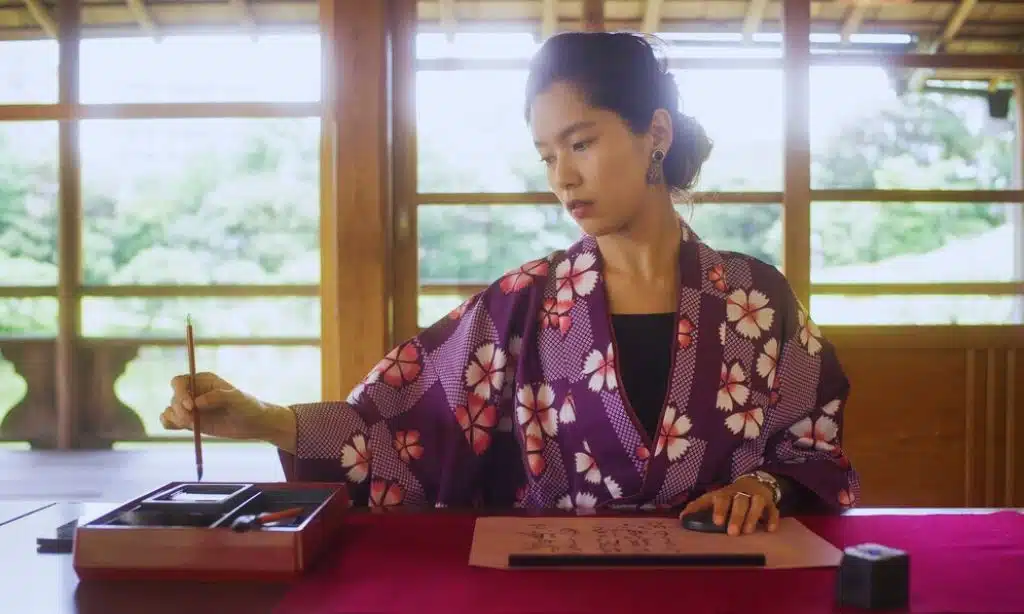Japan’s culture is a captivating blend of ancient philosophies and cutting-edge technology, creating a unique tapestry of values and principles that often differ significantly from those found in Western societies. Many of these foundational Japanese concepts lack direct translations, underscoring their intricate and profound nature. Understanding and integrating these ideas can offer fresh insights and a new lens through which to view the world. Here are 14 Japanese concepts that can help you see life in a different light.
1. Kaizen: Embracing Continuous Improvement
Kaizen translates to “continuous improvement” and is a philosophy centered on making small, incremental changes that accumulate to significant enhancements over time. Unlike drastic overhauls, Kaizen emphasizes steady, manageable adjustments that foster growth and efficiency.
In Practice:
- Personal Growth: Adopting Kaizen in your personal life might involve setting small, achievable goals, such as reading a few pages of a book each day or incorporating short exercise routines into your schedule.
- Business Applications: In the workplace, Kaizen encourages employees at all levels to suggest improvements, fostering a culture of collaboration and innovation. This approach helps businesses remain competitive, streamline operations, and minimize risks by continuously refining processes and systems.
Benefits:
- Promotes a mindset of perpetual growth and learning.
- Enhances productivity and efficiency without overwhelming change.
- Fosters a collaborative and proactive work environment.
2. Ikigai: Discovering Your Reason for Being
Ikigai is a deeply personal concept that signifies one’s purpose or reason for waking up each morning. It intertwines four elements: what you love, what you are good at, what the world needs, and what you can be paid for. Finding your Ikigai involves a journey of self-discovery to align your passions with meaningful contributions to society.
Steps to Find Your Ikigai:
- Identify Your Passions: What activities bring you joy and fulfillment?
- Assess Your Skills: What are you naturally good at or have developed expertise in?
- Determine What the World Needs: How can your passions and skills address societal needs?
- Consider Financial Sustainability: How can you monetize your Ikigai without compromising its essence?
Challenges and Rewards:
- Challenges: The search for Ikigai can be daunting, requiring introspection and perseverance. It may take time to balance personal desires with practical considerations.
- Rewards: Achieving Ikigai leads to a more meaningful and satisfying life, fostering personal growth and contributing positively to the community.
3. Wabi-Sabi: Embracing Imperfection and Transience
Wabi-sabi is the art of finding beauty in imperfection and embracing the transient nature of life. Rooted in Buddhist teachings, this concept values authenticity, simplicity, and the natural cycle of growth and decay.
Key Principles:
- Imperfection: Recognizing that flaws and asymmetries add character and uniqueness.
- Simplicity: Valuing minimalism and the elimination of excess.
- Transience: Appreciating the fleeting moments and the passage of time.
Applications:
- Art and Design: Wabi-sabi influences Japanese aesthetics in pottery, architecture, and garden design, where the focus is on natural materials and unrefined beauty.
- Daily Life: Adopting Wabi-sabi can lead to a more mindful and contented lifestyle, encouraging you to appreciate the present moment and the simple joys it offers.
Impact:
- Enhances creativity by valuing unique and authentic expressions.
- Promotes mental well-being by reducing the pressure to achieve perfection.
- Fosters a deeper connection with nature and the environment.
4. Oubaitori: The Beauty of Individuality
Oubaitori emphasizes the importance of not comparing oneself to others. The term is often symbolized by four kanji characters representing different blossoms: cherry, apricot, peach, and plum. Each flower blooms uniquely, illustrating that everyone has their own path and timing.
Philosophical Insights:
- Uniqueness: Just as each blossom has its distinct beauty, every individual possesses unique talents and qualities.
- Self-Acceptance: Embracing your individuality leads to greater self-confidence and reduces feelings of inadequacy.
Practical Implications:
- Personal Development: Focus on your strengths and personal growth rather than measuring yourself against others.
- Relationships: Appreciate and respect the differences in others, fostering more harmonious and supportive connections.
Benefits:
- Reduces anxiety and self-doubt associated with constant comparison.
- Encourages personal fulfillment by valuing your unique journey.
- Enhances overall happiness by focusing on self-improvement rather than external validation.
5. Mottainai: Valuing and Respecting Resources
Mottainai is a multifaceted concept that conveys a sense of regret over waste. It embodies a deep appreciation for the resources we have, urging mindful consumption and the efficient use of what is available.
Core Aspects:
- Resourcefulness: Making the most of what you have, whether it’s time, materials, or opportunities.
- Sustainability: Promoting environmentally friendly practices to reduce waste and conserve resources.
- Gratitude: Recognizing and appreciating the value of the things we possess.
Applications:
- Environmental Practices: Implementing recycling, upcycling, and sustainable living habits to minimize waste.
- Daily Life: Applying Mottainai can influence decisions such as repurposing items, reducing unnecessary purchases, and embracing minimalist lifestyles.
Impact:
- Contributes to environmental conservation and sustainability.
- Encourages financial prudence and efficiency.
- Fosters a sense of responsibility and gratitude towards the environment and available resources.
6. Yūgen: Sensing the Subtle Profound Beauty
Yūgen captures the profound, mysterious beauty of the universe, often felt but not easily articulated. It’s about experiencing the depth and subtlety of beauty in things that aren’t immediately obvious.
Characteristics:
- Profundity: A deep, almost spiritual appreciation for the unseen or unspoken aspects of beauty.
- Mystery: Embracing the unknown and finding allure in what remains unexplained.
- Elegance: Appreciating the understated and refined aspects of aesthetics.
Examples:
- Nature: Observing a mist-covered landscape at dawn or the quiet fall of cherry blossoms.
- Art: Experiencing the evocative silence in traditional Japanese poetry or the understated grace of a minimalist painting.
Benefits:
- Enhances emotional and spiritual well-being by connecting with deeper layers of beauty.
- Encourages mindfulness and presence, allowing you to fully engage with the moment.
- Inspires creativity by appreciating subtle and nuanced expressions.
7. Kanso: The Elegance of Simplicity
Kanso emphasizes the elegance of simplicity and the elimination of clutter, both physically and mentally. It is one of the seven pillars of Wabi-sabi and focuses on creating a serene and functional environment.
Principles:
- Minimalism: Reducing possessions and distractions to focus on what truly matters.
- Functionality: Ensuring that every item has a purpose and contributes to the overall harmony of the space.
- Clarity: Maintaining clean and organized environments that promote peace and efficiency.
Implementation:
- Home and Workspace: Decluttering spaces to create a calm and productive atmosphere. This might involve minimalist interior design, using only essential furniture, and organizing belongings neatly.
- Lifestyle: Adopting a simple lifestyle by prioritizing experiences over material possessions and minimizing unnecessary commitments.
Advantages:
- Reduces stress and enhances mental clarity by eliminating distractions.
- Increases productivity and focus by creating orderly environments.
- Promotes a sense of calm and well-being through simplicity.
8. Omoiyari: Cultivating Empathy and Compassion
Omoiyari embodies the essence of selfless compassion and empathy. It involves understanding and anticipating the needs and feelings of others, fostering respectful and harmonious relationships.
Key Elements:
- Empathy: Truly understanding and sharing the feelings of others.
- Anticipation: Proactively addressing the needs of others before they are expressed.
- Respect: Valuing and honoring the perspectives and experiences of those around you.
Applications:
- Personal Relationships: Practicing active listening, offering support, and showing genuine concern for loved ones.
- Workplace: Enhancing teamwork and collaboration by being considerate of colleagues’ ideas and workloads.
- Community Engagement: Participating in acts of kindness and contributing to the well-being of your community.
Benefits:
- Strengthens interpersonal relationships through mutual understanding and support.
- Creates a positive and inclusive environment in both personal and professional settings.
- Enhances emotional intelligence and social harmony.
9. Shizen: Harmonizing with Nature
Shizen translates to “nature,” but it embodies a deeper philosophical connection between humans and the natural world. It emphasizes living in harmony with the environment and respecting all forms of life.
Philosophical Foundations:
- Natural Order: Understanding and aligning with the inherent patterns and rhythms of nature.
- Sustainability: Promoting practices that preserve and protect the environment for future generations.
- Respect for Life: Valuing all living beings and recognizing their role in the ecosystem.
Influences:
- Art and Architecture: Incorporating natural elements and organic forms into design, such as traditional Japanese gardens and sustainable building practices.
- Lifestyle: Adopting eco-friendly habits, such as reducing waste, conserving energy, and embracing outdoor activities that foster a connection with nature.
Impact:
- Encourages environmental stewardship and sustainable living.
- Enhances physical and mental well-being through a closer relationship with nature.
- Promotes a balanced and respectful coexistence with the natural world.
10. Seijaku: Achieving Calm Focus Amidst Chaos
Seijaku refers to a state of calmness and focus, even in the midst of chaos. It’s about maintaining tranquility while being purposeful and capable of action.
Historical Context:
- Practiced by the samurai, Seijaku was essential for maintaining composure and strategic thinking during battles and conflicts.
Modern Applications:
- Stress Management: Techniques such as meditation, mindfulness, and deep breathing can help achieve Seijaku by calming the mind and enhancing focus.
- Work and Productivity: Maintaining a clear and focused mindset allows for better decision-making and efficiency, even under pressure.
Benefits:
- Reduces stress and enhances emotional stability.
- Improves concentration and productivity by fostering a clear and focused mind.
- Enables effective handling of challenging situations with grace and composure.
11. Gaman: Enduring with Patience and Dignity
Gaman embodies the principles of patience, endurance, and maintaining dignity in the face of adversity. It is about handling difficult situations with resilience and grace.
Cultural Significance:
- Rooted in the samurai code, Gaman emphasizes honor and integrity, encouraging individuals to remain steadfast and composed during hardships.
Practical Applications:
- Personal Challenges: Facing life’s obstacles with a positive attitude and persistent effort, whether dealing with illness, loss, or other personal trials.
- Professional Settings: Demonstrating resilience in the workplace by overcoming setbacks, meeting deadlines despite difficulties, and supporting colleagues during tough times.
Benefits:
- Builds mental and emotional resilience, enabling you to cope with stress effectively.
- Enhances personal growth by fostering perseverance and determination.
- Strengthens relationships through the display of integrity and supportive behavior.
12. Datsuzoku: Breaking Free from Routine
Datsuzoku signifies breaking away from daily routines and societal expectations. It encourages stepping outside your comfort zone to experience life in new and unconventional ways.
Essence:
- Innovation: Embracing creativity and resourcefulness by exploring new ideas and approaches.
- Adventure: Seeking novel experiences that challenge the status quo and expand your horizons.
Examples:
- Travel: Exploring unfamiliar places or adopting a tourist’s perspective in your hometown.
- Lifestyle Changes: Trying new activities, such as a different hobby, cuisine, or work environment, like working from a café instead of a home office.
- Personal Growth: Taking risks that lead to personal development, such as public speaking, learning a new language, or pursuing further education.
Advantages:
- Stimulates creativity and problem-solving by introducing new perspectives.
- Enhances personal fulfillment and excitement through diverse experiences.
- Prevents stagnation by continually challenging and expanding your boundaries.
13. Shikata ga Nai: Accepting What You Can’t Change
Shikata ga nai translates to “it cannot be helped” and embodies a mindset of accepting situations beyond your control. This philosophy encourages focusing on what you can influence rather than dwelling on the uncontrollable aspects of life.
Key Concepts:
- Acceptance: Embracing reality as it is, without resistance or frustration.
- Resilience: Focusing your energy on constructive actions within your sphere of influence.
- Present-Mindedness: Staying grounded in the present moment, rather than getting caught up in past regrets or future anxieties.
Applications:
- Personal Life: Letting go of past mistakes or circumstances you cannot change, and instead focusing on current opportunities and solutions.
- Workplace: Adapting to changes in the job environment, such as shifting responsibilities or organizational restructuring, by finding new ways to contribute effectively.
- Relationships: Accepting differences in others and finding ways to coexist harmoniously without trying to change them.
Benefits:
- Reduces stress and anxiety by promoting a focus on manageable aspects of life.
- Enhances emotional well-being through acceptance and adaptability.
- Encourages proactive problem-solving and positive action within your control.
14. Fukinsei: Appreciating Asymmetry and Irregularity
Fukinsei is the appreciation of asymmetry and irregularity, celebrating the unique and special qualities found in nature and people. It is closely linked to Wabi-sabi and emphasizes the beauty inherent in the imperfect and the unbalanced.
Philosophical Insights:
- Uniqueness: Every individual and object possesses distinct characteristics that make them special.
- Natural Flow: Embracing the natural variations and imperfections that occur in life.
Examples:
- Nature: Admiring the uneven shapes of rocks in a garden or the unpredictable patterns of weather.
- Art and Design: Valuing handcrafted items that showcase irregularities and unique textures over mass-produced, uniform products.
Practical Implications:
- Personal Relationships: Appreciating the differences and quirks in friends and family members, fostering deeper and more meaningful connections.
- Work Environment: Encouraging diversity and unique perspectives, which can lead to innovative ideas and solutions.
Advantages:
- Promotes a more inclusive and accepting worldview by valuing diversity and individuality.
- Enhances creativity by appreciating unconventional and unexpected elements.
- Fosters a sense of wonder and appreciation for the natural world’s inherent beauty.
Embracing Japanese Wisdom for a Fuller Life
These 14 Japanese concepts offer profound insights into living a more mindful, balanced, and fulfilling life. By integrating ideas like Kaizen, Ikigai, and Wabi-sabi into your daily routine, you can cultivate personal growth, enhance relationships, and develop a deeper appreciation for the world around you. Exploring these philosophies can provide new perspectives, enrich your overall well-being, and help you navigate life’s challenges with grace and resilience. Embracing Japanese wisdom not only broadens your understanding of different cultural values but also equips you with timeless principles that can enhance your quality of life in meaningful ways.
Further Exploration and Practical Tips
To truly benefit from these Japanese concepts, consider the following practical steps:
- Reflect and Journal: Spend time each day reflecting on which concepts resonate most with you. Journaling can help clarify your thoughts and track your progress in integrating these ideas into your life.
- Mindfulness Practices: Incorporate mindfulness techniques such as meditation, yoga, or tai chi to enhance your awareness and presence, aligning with concepts like Seijaku and Yūgen.
- Minimalist Living: Start decluttering your living and workspaces to embrace Kanso and Mottainai. Focus on keeping only items that add value and serve a purpose.
- Set Incremental Goals: Apply Kaizen by setting small, achievable goals that contribute to your long-term objectives. Celebrate each step of progress to stay motivated.
- Connect with Nature: Spend more time outdoors to experience Shizen firsthand. Activities like hiking, gardening, or simply walking in a park can deepen your connection with nature.
- Cultivate Empathy: Practice Omoiyari by actively listening to others, offering support, and anticipating their needs. This can enhance your relationships and create a more compassionate environment.
- Seek New Experiences: Embrace Datsuzoku by trying new activities, exploring different places, and stepping out of your comfort zone regularly to stimulate creativity and personal growth.
- Embrace Imperfection: Adopt Wabi-sabi and Fukinsei by appreciating the imperfect and asymmetrical aspects of your surroundings and yourself. This can lead to greater acceptance and inner peace.
- Accept and Adapt: Use Shikata ga nai as a tool to manage stress and focus on what you can control. Practice letting go of things beyond your influence to achieve emotional balance.
- Find Your Ikigai: Dedicate time to discovering your Ikigai by exploring your passions, strengths, and how they can contribute to the world. This journey can lead to a more purposeful and fulfilling life.
By thoughtfully incorporating these Japanese concepts into your daily life, you can develop a richer, more nuanced perspective that not only enhances your personal well-being but also fosters a more harmonious and sustainable relationship with the world around you.
Takeaway
Incorporating these 14 Japanese concepts into your daily life can lead to profound changes in how you view yourself, your relationships, and the world around you. Whether it’s finding beauty in imperfection through wabi-sabi, discovering your purpose with ikigai, or cultivating mindfulness with zanshin, these timeless philosophies offer practical wisdom for modern living. By embracing these ideas, you open the door to a more balanced, fulfilling, and meaningful life. Take small steps to apply these principles, and watch how they can transform your perspective and bring clarity and peace to your everyday experiences.










































